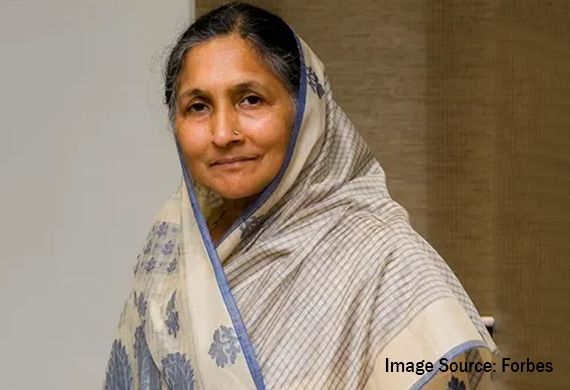
How Will Women Change the Landscape Of Entrepreneurship In 2022?
By: Rhea Singh Anand, Co founder, Flexnest
In recent years, India has seen a rapid increase in the number of new startups. While men have always been the bigger players of the startup world, several brave women have taken the leap and begun their own new ventures in recent times. Women entrepreneurs have essentially inveigled the social and economic census of the count in India, thanks to their expanding presence.
According to a report by Bain & Company, women own 13.5–15.7 million businesses in India today, accounting for 20% of all businesses. Despite their size in absolute terms, these are largely made up of one-person businesses, which employ an estimated 22 to 27 million people directly. Furthermore, a number of women-owned businesses are not actually controlled or run by women. Women are "on paper" proprietors with limited role to play due to a mix of financial and administrative issues. Benchmarks from high-performing countries and Indian states can help India boost female entrepreneurship in general. The same report also states that accelerating the quantity and quality of entrepreneurship toward such goals might result in the creation of over 30 million women-owned businesses, with 40% of those being more than self-employment.
Women's participation in the workforce has aided a huge number of families in overcoming adversity and has resulted in employment development. Increasing the number of women in the workforce not only doubles our economic output, but it also teaches the next generation about equality by providing a tangible example. As a result, how men and women are seen by society and each other changes. Because women are known for their leadership talents, they will continue to dominate in cutting-edge companies.
The Benefit of Women Joining the Workforce
With a population of nearly 1 billion people, India will have the world's highest working-age population in the next decade. When combined with an increasingly educated population, India's demographic dividend has the potential to change the country's economic and social progress. However, the private and public sectors alone have not been able to meet the need for work. Women's entrepreneurship is a critical component of the whole solution. It not only benefits the economy by creating jobs, but it also has a transformative social and personal impact on women.
Initiatives to Support Women Entrepreneurs
Women have been clearly recognised on the national economic agenda in recent years, including measures to foster entrepreneurship. Both public and private organisations have developed a variety of measures to help boost this possibility. These initiatives are aimed at addressing gender-specific funding issues, as well as giving access to skills training and mentorship, and also strengthening market ties. With promising results, these programmes, some of which are highlighted here, offer a lot of room for replication or extension.
There are various instances that exhibit that women entrepreneurs are getting the much-needed support from the public as well as the private sector. According to a new regulation issued by the Ministry of Micro, Small and Medium Enterprises, ministries, departments, and public sector organisations must acquire 25% of their goods and services from MSME firms, with 3% of those firms being women-owned.
WE Hub was founded by the Telangana government in 2018 to promote women-owned businesses by offering funding, infrastructure, marketing and legal services, mentorship, and technical support. This programme has helped 25 start-ups, with 16 of them receiving loans of up to INR 2 crore.
The Mann Deshi Foundation's successful finance and skills development project for rural women entrepreneurs has resulted in INR 500 crore in total financing for 90,000 women, the establishment of more than 50,000 micro businesses, and the participation of 4 lakh women in their business school and chambers of commerce programmes.
Leading With Emotional Intelligence
In the post-COVID environment, concepts like compassionate leadership and management soft skills training have become buzzwords. Women, on the other hand, are better at employing specific soft skills that are critical for effective leadership and improved business performance, according to a Korn Ferry study released in 2016. Women outperform men in coaching and mentoring, inspirational leadership, conflict management, and adaptability, among other major areas where they outperformed males. These skills are beneficial in developing motivated teams that desire to stay with the company for a long time.
Summing Up!
We've heard for centuries that there is a bias between the genders but women have proven that they can be equal to men in all fields. They demonstrated to everyone that women are capable of seamlessly handling household affairs as well as professional careers. They have consistently broken down boundaries and forged their own paths to success. Women have developed and enhanced the business ecosystem and communities, from being the family's front runners to timely implementation of their businesses. With the coming times, it is appropriate to say that women are ready to take the world by a storm and completely transform the face of the entrepreneurship landscape in India.






